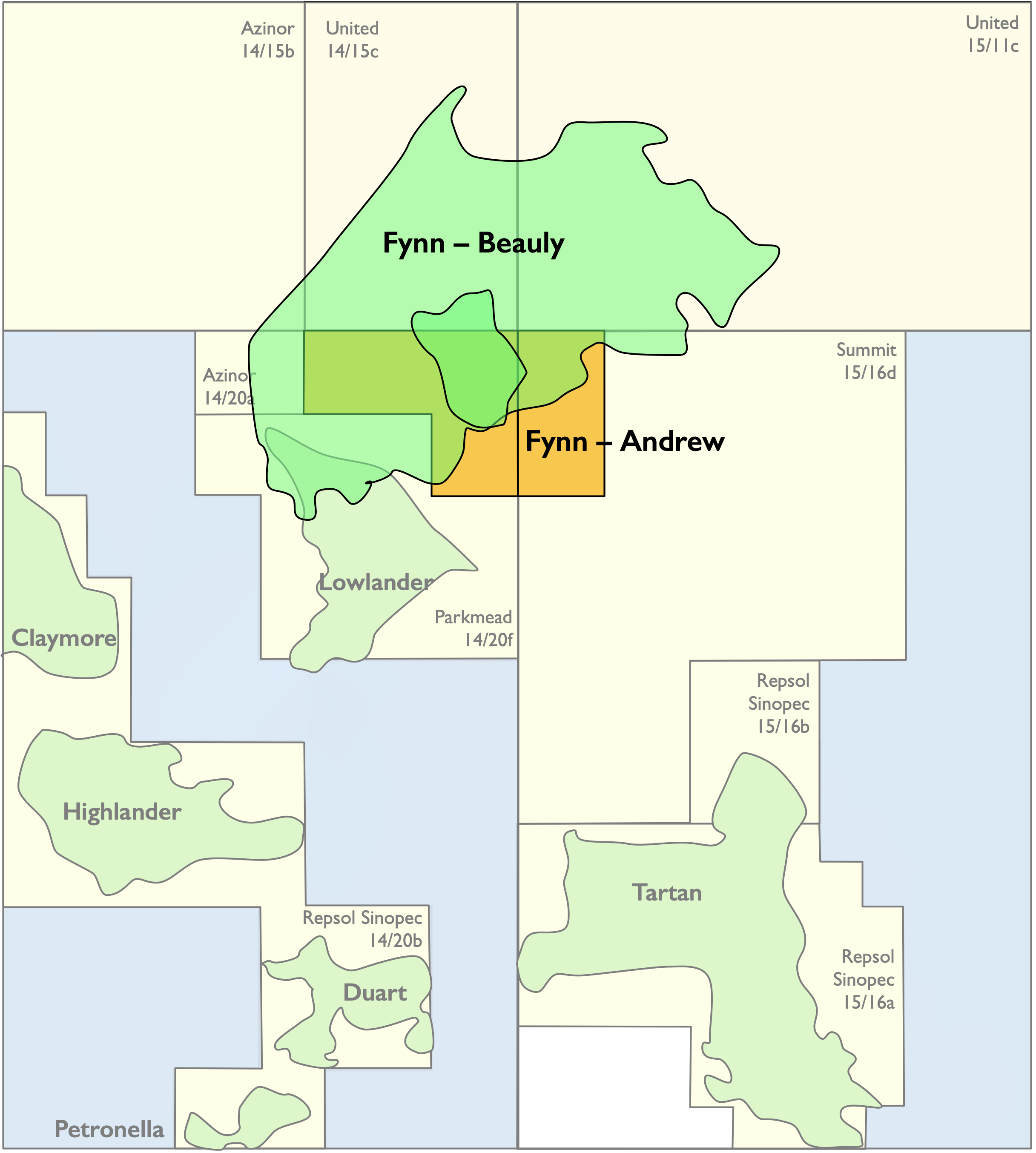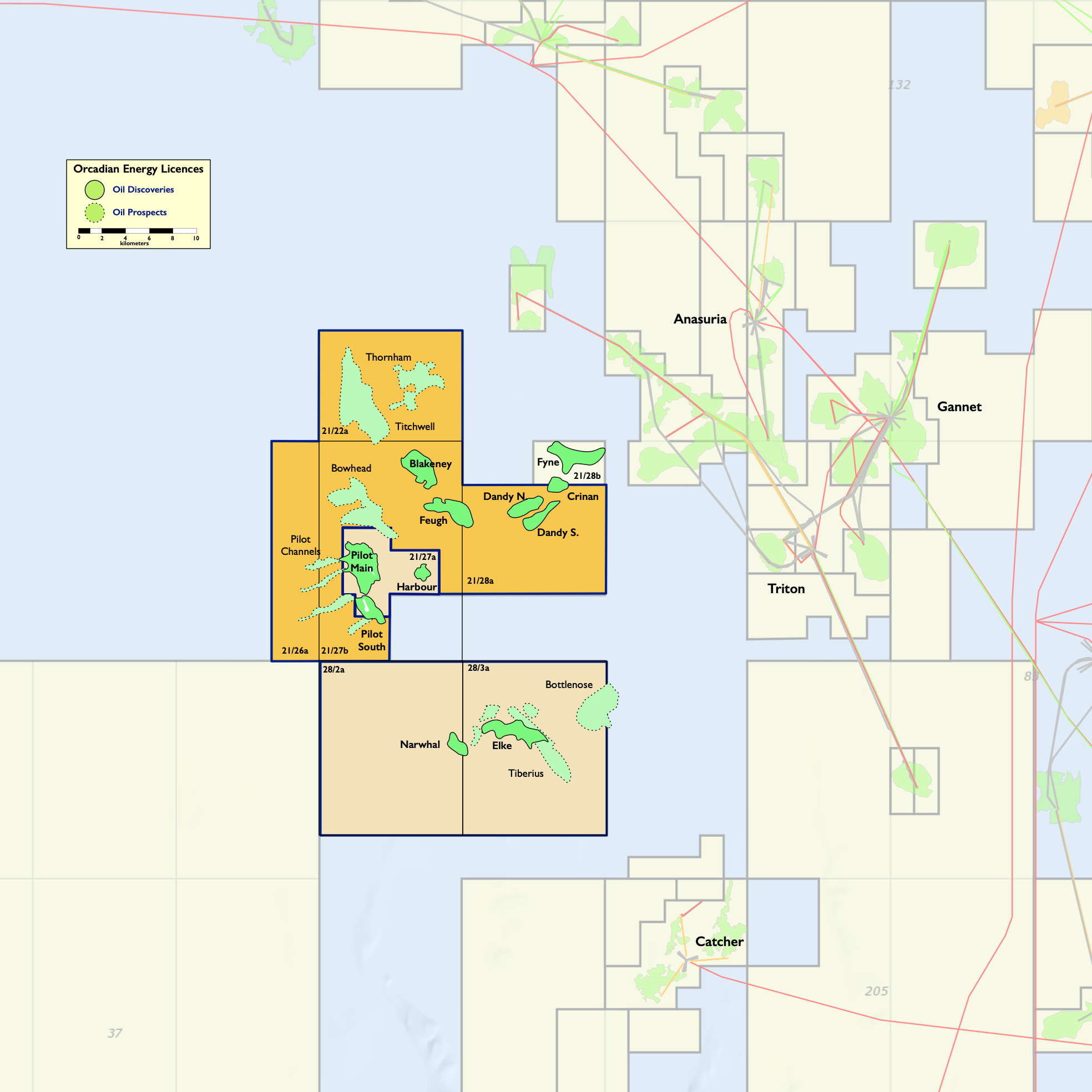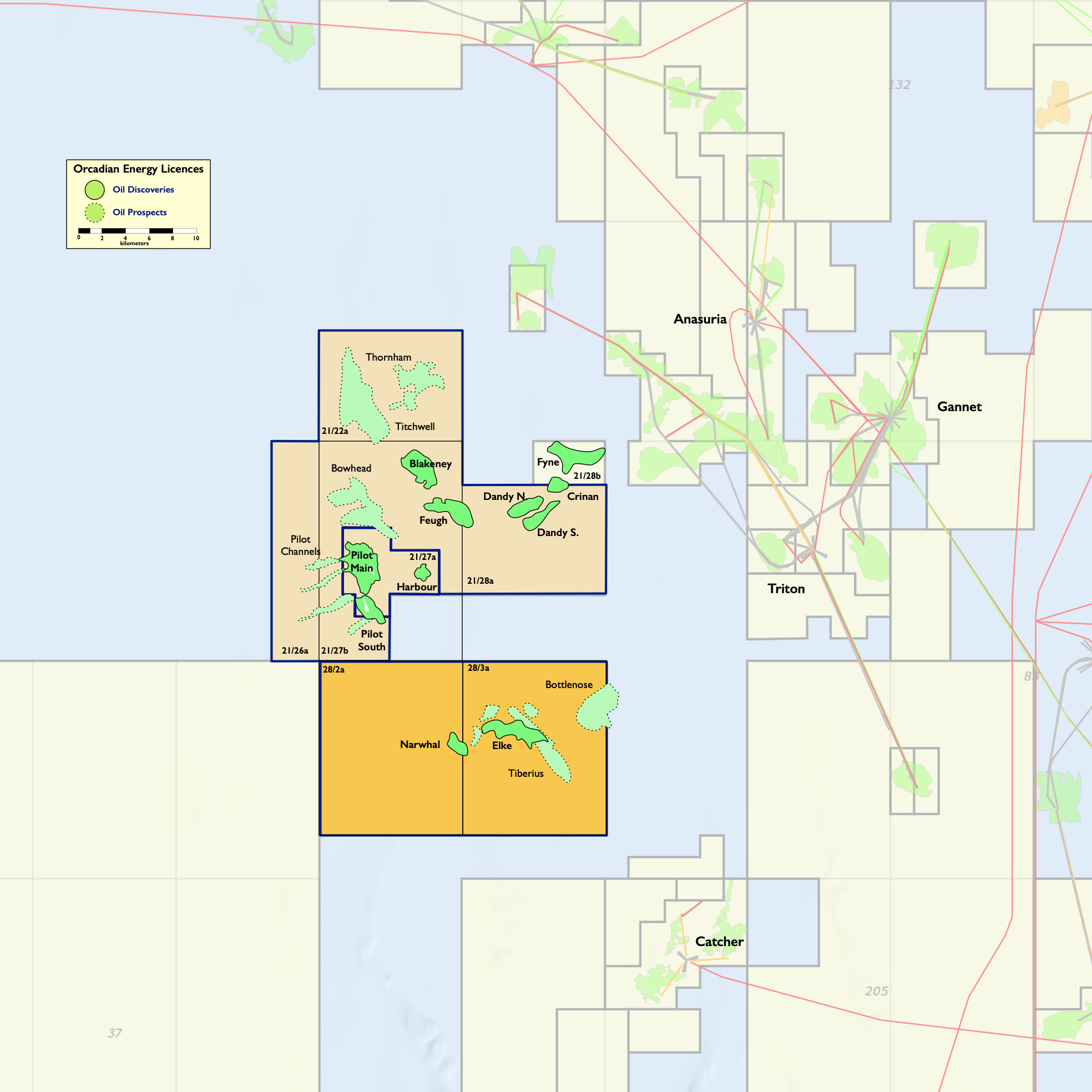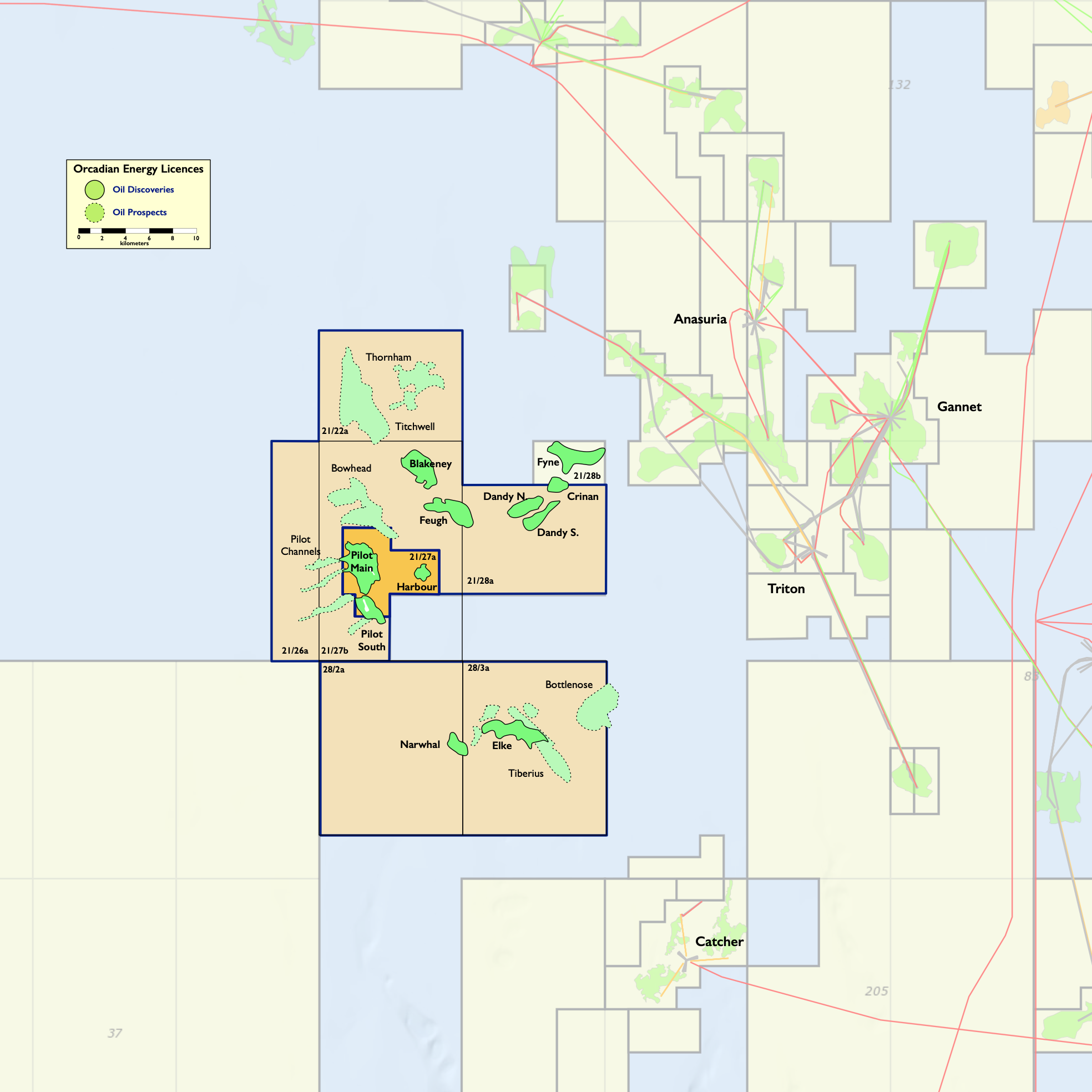13 June 2022
Orcadian Energy plc
(“Orcadian Energy”, “Orcadian” or the “Company”)
Orcadian Energy (AIM:ORCA), the low-emissions North Sea oil and gas development company, is pleased to provide the following update.
Highlights:
- The Company has submitted a draft Field Development Plan for the Pilot oilfield to the North Sea Transition Authority (NSTA)
- A structured farm-out process has been initiated for the Pilot oilfield
- New tax regime has transformed economics of North Sea investment for tax-paying companies.
Summary
Orcadian has 79MMbbls of 2P reserves in the Pilot oilfield and the Pilot oilfield Field Development Plan (“FDP”) builds upon work done in the concept select process which culminated in NSTA sending a “letter of no objection” to the low-emissions concept selected by Orcadian, as announced on 1 December last year.
Orcadian’s proposed low emissions, FDP for Pilot is based upon a Floating Production Storage and Offloading vessel (FPSO), with thirty-four wells to be drilled by a Jack-up rig through a pair of well head platforms and provision of power from a floating wind turbine. Emissions per barrel produced are expected to be about an eighth of the 2020 North Sea average, and less than half of the lowest emitting oil facility currently operating on the UKCS. On a global basis this places the Pilot oilfield emissions at the low end of the lowest 5% of global oil production. The draft FDP will be discussed and agreed between NSTA and Orcadian over the coming months but it cannot be approved until the associated development finance has been finalised. The structured farm out process, that has been initiated for Pilot, is a key part of that process.
At the same time, the Directors understand that the introduction of the Energy Profits Levy (“EPL”) by the UK Government last month, has radically improved the economics of a farm-in deal for some potential farminees. Whilst the EPL did introduce a further tax on profits from UK oil and gas companies, it also introduced significant investment allowances to encourage oil and gas companies to reinvest their profits to support the economy, jobs and UK energy security. Accordingly, for companies that pay both EPL and UK ring fence corporation tax (a modified form of corporation tax only payable by the UK oil and gas industry), the after-tax cost of development could be reduced by up to 75% when compared with a non-tax paying company. The Board believe that this will make investment in the development of the Pilot oilfield an increasingly attractive opportunity.
There is more information on the workings of the UK ring fence tax system, and the impact of the EPL, available in a Treasury briefing note here: https://bit.ly/Treasury_EPL
Steve Brown, Orcadian’s CEO, said:
“Submission of the draft FDP is a further important milestone for the Pilot development and highlights the maturity of the project. Our focus on minimising emissions means that the project will be especially attractive to companies that wish to drive down their emissions intensity whilst the introduction of the investment allowances as part of the Energy Profits Levy will surely incentivise operators to double down on investing in domestic energy security. We look forward to a heightened level of interest in our project and providing further updates as the process progresses.”
The information contained within this announcement is deemed by the Company to constitute inside information as stipulated under the Market Abuse Regulations (EU) No. 596/2014 (MAR). Upon the publication of this announcement via Regulatory Information Service (RIS), this inside information is now considered to be in the public domain.
For further information on the Company please visit the Company’s website: https://orcadian.energy
Contact:
| Orcadian Energy plc | + 44 20 7920 3150 |
|
Steve Brown, CEO Alan Hume, CFO |
|
| WH Ireland (Nomad and Joint Broker) | +44 20 7220 1666 |
|
Harry Ansell / Fraser Marshall (Corporate Broking) Katy Mitchell / Andrew de Andrade (Nomad) |
|
| Shore Capital (Joint Broker) | +44 20 7408 4090 |
|
Toby Gibbs / James O’Neill (Advisory) |
| Tavistock (PR) | + 44 20 7920 3150 |
|
Nick Elwes Simon Hudson Matthew Taylor |
[email protected] |
| Charlesbye (PR) | + 44 7403 050525 |
|
Lee Cain / Lucia Hodgson |
About Orcadian Energy
Orcadian is a North Sea oil and gas operator with a difference. In planning its Pilot development, Orcadian has selected wind power to transform oil production into a cleaner and greener process. The Pilot project is moving towards approval and will be amongst the lowest carbon emitting oil production facilities in the world, despite being a viscous crude. Orcadian may be a small operator, but it is also nimble, and the Directors believe it has grasped opportunities that have eluded some of the much bigger companies. As we strike a balance between Net Zero and a sustainable energy supply, Orcadian intends to play its part to minimise the cost of Net Zero and to deliver reliable organic energy.
Orcadian Energy (CNS) Ltd (“CNS”), Orcadian’s operating subsidiary, was founded in 2014 and is the sole licensee of P2244, which contains 78.8 MMbbl of 2P Reserves in the Pilot discovery, and of P2320 and P2482, which contain a further 77.8 MMbbl of 2C Contingent Resources in the Elke, Narwhal and Blakeney discoveries (as audited by Sproule, see the CPR in the Company’s Admission Document for more details). Within these licences there are also 191 MMbbl of unrisked Prospective Resources. These licences are in blocks 21/27, 21/28, 28/2 and 28/3, and lie 150 kms due East of Aberdeen. The Company also has a 50% working interest in P2516, which contains the Fynn discoveries. P2516 is administered by the Parkmead Group and covers blocks 14/20g and 15/16g, which lie midway between the Piper and Claymore fields, 180 kms due East of Wick.
Pilot, which is the largest oilfield in Orcadian’s portfolio was discovered by Fina in 1989 and has been well appraised. In total five wells and two sidetracks were drilled on Pilot, including a relatively short horizontal well which produced over 1,800 bbls/day on test.




